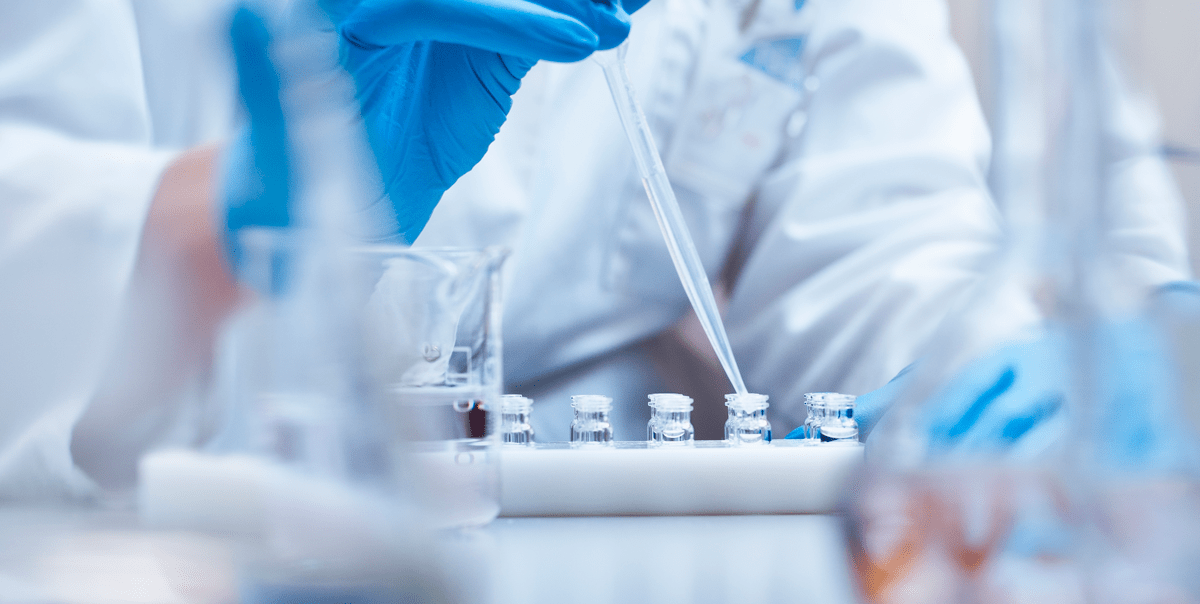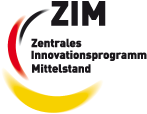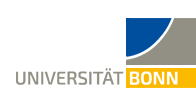RESEARCH AND DEVELOPMENT

OUR LABORATORY
We operate a fully equipped laboratory for the purposes of quality assurance and product development. In addition to all traditional wet chemical laboratory procedures, we use, among others:
Ion chromatography (IC)
Photometry (also flow rate)
Amperometry
Ion-selective measurements
DR. KÜKE GMBH AS A PROJECT PARTNER
PROJECT TYPE
SHORT DESCRIPTION
COOPERATION PARTNERS

In the ZIM innovation network TRIQUA – Technologies for Sustainable Use and Treatment of Water, various actors from industry and science are cooperating whose main motivation is to develop integrated and sustainable solutions for water management in the coming years.
The focus is on initiating as well as implementing joint R&D project ideas and technology approaches for the disinfection and purification of water streams, continuous monitoring of water quality and smart metering of water.


Innovative drying of individual udder quarters in dairy cattle

Intelligent, hybrid, self-sufficient, bioelectric systems for energy and media production in the brewing industry, electrochemical in-situ production of chlorine dioxide within the overall system of process water production by bioelectric wastewater treatment and identification of legal requirements for electrochemically produced chlorine dioxide
Autonomously tested floor disinfection:
Development of an autonomous chlorine dioxide-based robotic floor disinfection process with automated semi-continuous control of the disinfection result.
Development of a chlorine dioxide-based disinfectant cleaner which is compatible with monitors. Derivation of a suitable carrier structure for monitors, and development of the parameters for applying the disinfectant cleaner by machine


Raman-based methods for biofilm characterisation for efficient wastewater treatment using microbial fuel cells


Technical University of Munich
TUM School of Life Sciences
Chair of Food Chemistry and Molecular Sensory Technology
Chair of Analytical Chemistry and Water Chemistry
Cooperation project – Light-based sensor for continuous determination of chlorine dioxide (LAClO2)

GottGottfried Wilhelm Leibniz University of Hannover (LUH)
Institute for Microproduction Technology (IMPT)
Developing the test method and designing the manufacturing process of a light-based sensor for continuous determination of chlorine dioxide

Gottfried Wilhelm Leibniz University of Hannover (LUH)
Institute for Microproduction Technology (IMPT)
Thesis
Prevention of ecotoxic substances in electroplating technology via a new type of oxidation system

Gottfried Wilhelm Leibniz University of Hannover (LUH)
Institute for Technical Chemistry, University of Hannover
Dissertation
Analysis of the formation of disinfection by-products in the treatment of drinking water on board floating naval units under application conditions
Faculty of Mathematics and Natural Sciences
Rheinischen Friedrich-Wilhelms University of Bonn
Thesis
Reaction-kinetic analysis of the reactants in chlorine dioxide solutions produced in accordance with the peroxodisulfate/chlorite system

Institute for Technical Chemistry, Leibniz University of Hannover
Institute for Analytical Chemistry

Thesis
Construction and use of an optical sensor for determining chlorine dioxide in sterilisation technology

Institute for Technical Chemistry, University of Hannover
Thesis
Experimental studies on beer and beverage dispensing hygiene

Centre for Applied Chemistry, Institute for Food Science
University of Hannover
DR. KÜKE GMBH AS A PROJECT PARTNER
PROJECT TYPE
SHORT DESCRIPTION
COOPERATION PARTNERS

In the ZIM innovation network TRIQUA – Technologies for Sustainable Use and Treatment of Water, various actors from industry and science are cooperating whose main motivation is to develop integrated and sustainable solutions for water management in the coming years.
The focus is on initiating as well as implementing joint R&D project ideas and technology approaches for the disinfection and purification of water streams, continuous monitoring of water quality and smart metering of water.


Innovative drying of individual udder quarters in dairy cattle

Intelligent, hybrid, self-sufficient, bioelectric systems for energy and media production in the brewing industry, electrochemical in-situ production of chlorine dioxide within the overall system of process water production by bioelectric wastewater treatment and identification of legal requirements for electrochemically produced chlorine dioxide
Autonomously tested floor disinfection:
Development of an autonomous chlorine dioxide-based robotic floor disinfection process with automated semi-continuous control of the disinfection result.
Development of a chlorine dioxide-based disinfectant cleaner which is compatible with monitors. Derivation of a suitable carrier structure for monitors, and development of the parameters for applying the disinfectant cleaner by machine


Raman-based methods for biofilm characterisation for efficient wastewater treatment using microbial fuel cells


Technical University of Munich
TUM School of Life Sciences
Chair of Food Chemistry and Molecular Sensory Technology
Chair of Analytical Chemistry and Water Chemistry
Cooperation project – Light-based sensor for continuous determination of chlorine dioxide (LAClO2)

GottGottfried Wilhelm Leibniz University of Hannover (LUH)
Institute for Microproduction Technology (IMPT)
Developing the test method and designing the manufacturing process of a light-based sensor for continuous determination of chlorine dioxide

Gottfried Wilhelm Leibniz University of Hannover (LUH)
Institute for Microproduction Technology (IMPT)
Thesis
Prevention of ecotoxic substances in electroplating technology via a new type of oxidation system

Gottfried Wilhelm Leibniz University of Hannover (LUH)
Institute for Technical Chemistry, University of Hannover
Dissertation
Analysis of the formation of disinfection by-products in the treatment of drinking water on board floating naval units under application conditions
Faculty of Mathematics and Natural Sciences
Rheinischen Friedrich-Wilhelms University of Bonn
Thesis
Reaction-kinetic analysis of the reactants in chlorine dioxide solutions produced in accordance with the peroxodisulfate/chlorite system

Institute for Technical Chemistry, Leibniz University of Hannover
Institute for Analytical Chemistry

Thesis
Construction and use of an optical sensor for determining chlorine dioxide in sterilisation technology

Institute for Technical Chemistry, University of Hannover
Thesis
Experimental studies on beer and beverage dispensing hygiene

Centre for Applied Chemistry, Institute for Food Science
University of Hannover
DR. KÜKE GMBH AS A PROJECT PARTNER
PROJECT TYPE

SHORT DESCRIPTION
In the ZIM innovation network TRIQUA – Technologies for Sustainable Use and Treatment of Water, various actors from industry and science are cooperating whose main motivation is to develop integrated and sustainable solutions for water management in the coming years.
The focus is on initiating as well as implementing joint R&D project ideas and technology approaches for the disinfection and purification of water streams, continuous monitoring of water quality and smart metering of water.
COOPERATION PARTNERS

PROJECT TYPE

SHORT DESCRIPTION
Innovative drying of individual udder quarters in dairy cattle
COOPERATION PARTNERS

COOPERATION PARTNERS

PROJECT TYPE
SHORT DESCRIPTION
Intelligent, hybrid, self-sufficient, bioelectric systems for energy and media production in the brewing industry, electrochemical in-situ production of chlorine dioxide within the overall system of process water production by bioelectric wastewater treatment and identification of legal requirements for electrochemically produced chlorine dioxide
PROJECT TYPE
SHORT DESCRIPTION
Autonomously tested floor disinfection:
Development of an autonomous chlorine dioxide-based robotic floor disinfection process with automated semi-continuous control of the disinfection result.
Development of a chlorine dioxide-based disinfectant cleaner which is compatible with monitors. Derivation of a suitable carrier structure for monitors, and development of the parameters for applying the disinfectant cleaner by machine
COOPERATION PARTNERS

PROJECT TYPE

SHORT DESCRIPTION
Raman-based methods for biofilm characterisation for efficient wastewater treatment using microbial fuel cells
COOPERATION PARTNERS


Technical University of Munich
TUM School of Life Sciences
Chair of Food Chemistry and Molecular Sensory Technology
Chair of Analytical Chemistry and Water Chemistry
PROJECT TYPE
SHORT DESCRIPTION
Cooperation project – Light-based sensor for continuous determination of chlorine dioxide (LAClO2)
COOPERATION PARTNERS

GottGottfried Wilhelm Leibniz University of Hannover (LUH)
Institute for Microproduction Technology (IMPT)
PROJECT TYPE
SHORT DESCRIPTION
Developing the test method and designing the manufacturing process of a light-based sensor for continuous determination of chlorine dioxide
COOPERATION PARTNERS

Gottfried Wilhelm Leibniz University of Hannover (LUH)
Institute for Microproduction Technology (IMPT)
PROJECT TYPE
Thesis
SHORT DESCRIPTION
Prevention of ecotoxic substances in electroplating technology via a new type of oxidation system
COOPERATION PARTNERS

Gottfried Wilhelm Leibniz University of Hannover (LUH)
Institute for Technical Chemistry, University of Hannover
PROJECT TYPE
Dissertation
SHORT DESCRIPTION
Analysis of the formation of disinfection by-products in the treatment of drinking water on board floating naval units under application conditions
COOPERATION PARTNERS
Faculty of Mathematics and Natural Sciences
Rheinischen Friedrich-Wilhelms University of Bonn
PROJECT TYPE
Thesis
SHORT DESCRIPTION
Reaction-kinetic analysis of the reactants in chlorine dioxide solutions produced in accordance with the peroxodisulfate/chlorite system
COOPERATION PARTNERS

Institute for Technical Chemistry, Leibniz University of Hannover
Institute for Analytical Chemistry

PROJECT TYPE
Thesis
SHORT DESCRIPTION
Construction and use of an optical sensor for determining chlorine dioxide in sterilisation technology
COOPERATION PARTNERS

Institute for Technical Chemistry, University of Hannover
PROJECT TYPE
Thesis
SHORT DESCRIPTION
Experimental studies on beer and beverage dispensing hygiene
COOPERATION PARTNERS

Centre for Applied Chemistry, Institute for Food Science
University of Hannover


